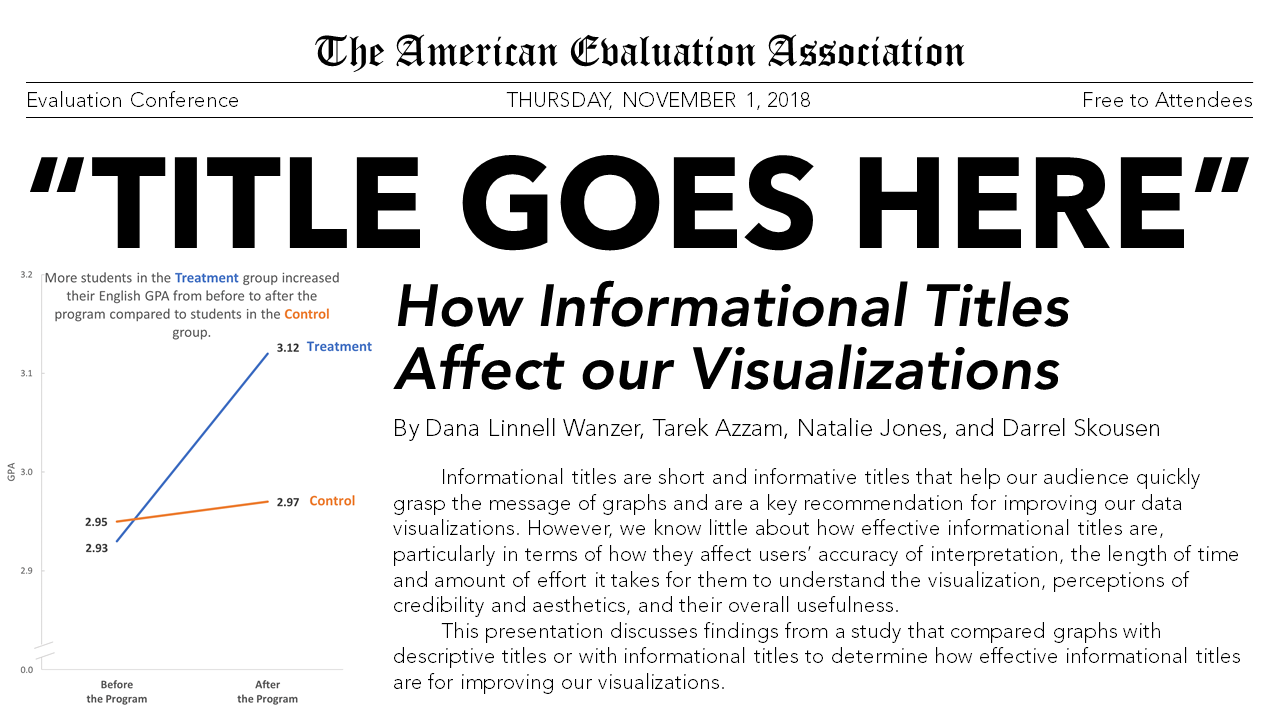Presentations at #Eval18
This year I am going to be far less busy at the AEA conference! I will only be presenting two papers, both of which are research projects I am conducting with Dr. Tarek Azzam and colleagues at Claremont Graduate University. The abstracts and more information about the sessions are below. I will write up blog posts about them shortly after the conference and/or after publishing the results.
"Title Goes Here": How Informational Titles Affect our Visualizations
Thursday, November 01 from 8:00 am to 9:00 am in Hilton - Hope Ballroom D
Informational titles are short and informative titles that help our audience quickly grasp the message of graphs and are a key recommendation for improving our data visualizations. However, we know little about how effective informational titles are, particularly in terms of how they affect users’ accuracy of interpretation, the length of time and amount of effort it takes for them to understand the visualization, perceptions of credibility and aesthetics, and their overall usefulness. This presentation discusses findings from a study that compared graphs with no titles, with generic titles, and with informational titles to determine how effective informational titles are for improving our visualizations.

Investigating Political Situations in Evaluation
Wednesday, October 31 from 4:30 pm to 5:30 pm in CC - 25A
Politics often pervade evaluation work. Whether explicit or nuanced, politics can drive who or what influences the evaluation process, color the truths we seek and discover, and separate the voices we hear from the unheard. This research on evaluation study was conducted to better understand the nature of politics in evaluation, how it manifests at different stages of the evaluation process, and what can be done to address it. A sample of AEA members were randomly assigned to one of eight different stages of the evaluation process and asked to describe a political situation they have encountered during that stage. The authors will compare the political situations common to each stage and offer corresponding strategies proposed by study participants. Attendees will develop a deeper understanding of politics in evaluation, gain insights into how to identify and predict political situations, and learn strategies to minimize the impact of politics on evaluation work.